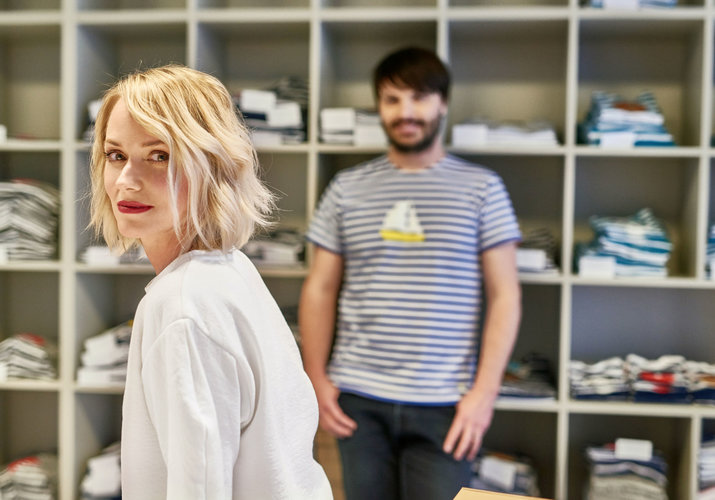Piskacie brand started as the nostalgic flashback from the past. Silvia Nemethova, as a child, never had such a t-shirt, but suddenly her dream came true by creating own brand together with Majo. The brand which entertains kids but grownups as well.
We met them at their home and discussed not only beginnings and brand philosophy, but also eco-responsibility and running business when you live in one household.
Silvia Nemethova studied graphic design and photography at VSVU afterwards. Her following steps led to the casting agency and later to the production field, the place where she met Majo. Nowdays the family consists of their two girls – Zara and Amelia and Piskacie has became a fifth member. “Classical scenario,” Silvia laughts
Silvia, I know that idea of Piskacie squeaking t-shirts was born during your maternity leave, when you were staying at home with your two girls. Where did this come from?
Silvia: I remember wanting this t-shirt so much during my childhood, it was something rare and luxurious. But then these t-shirts disappeared from the shops and idea of it kept following me for quite some time. I did not have a clue where to get them and since it had been my childhood desire I thought it would be great to bring it back again. Anyway, this was just a dream. It was Majo who helped me to make it happen. He loves new challenges and one day decided to order squeaking devices.
Majo: Yes, we were sure to give it a try but did not know the squeaking mechanism behind it. So we kept searching, buying children books – tearing them apart and asking the producers THIS THING, this is what we want.
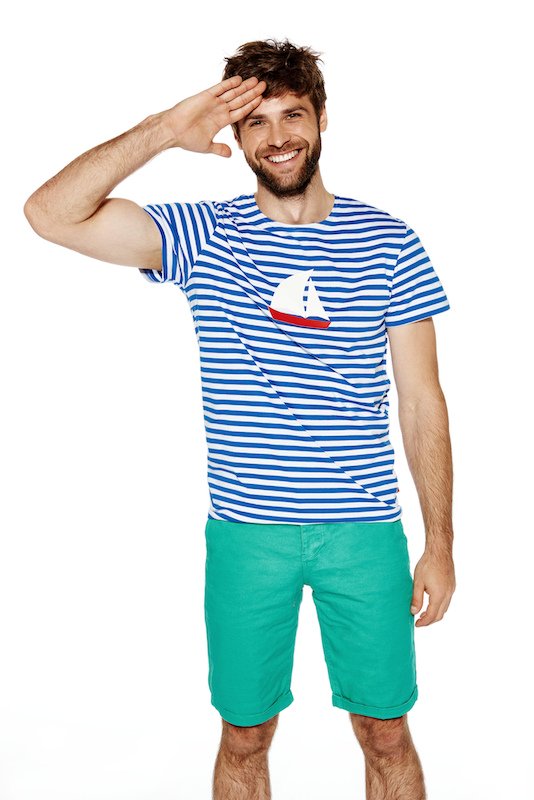
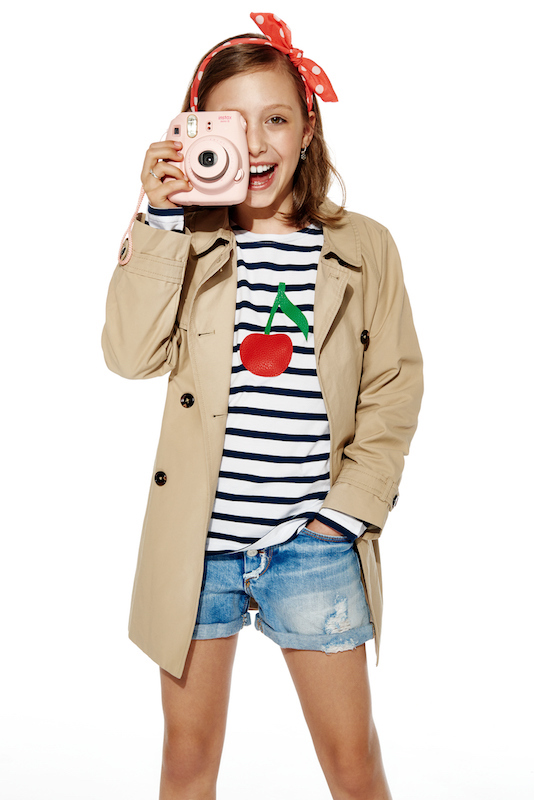
Can you Describe the business beginnings during maternity leave?
M.: We started with long sleeved t-shirt, pre-made and only attached the squeaking appliqué. But it did not take long to realise, that they are just like another random t-shirts already present on the market without any additional value. Frankly, it would be cheaper with higher profit but we were fond of the idea of local manufacture.
S.: We wanted it to be pleasing, nice, wearable and flattering regrading every body type.
Did it work?
S.: At the beginning, our girls wore the t-shirts to kindergarten and other kids loved them. And that was how our first orders started. We arranged a very simple website and Facebook page, anxious what was going to happen. All of sudden there was a whole bunch of orders which I used to write down quite chaotically on the random pieces of paper.
M.: We also participated in the first Majales in 2013, held by people from Čerstve ovocie organisation. With the support from Ďuri Kemka and Robo Roth we went sold out during one day. For the following days we were just standing with business cards since there was nothing to sell. A year after we had pick up spot in Kontakt, a place opened by Dana Kleinert. People used to come which was a good sign this might probably work out.
Tell us something more about your shape and cuts designing, did you have to learn to draw?
S.: No, those are just scribbles, not presentable at all (laughts). I pass it to chief seamstress Lenka to discuss and they are able to come up with a shape afterwards. It is all about mutual communication and effort. Not until I find the piece suitable do we start with production of the other sizes. The truth is that my Zara is XXS model, I am S size, Majo is obviously size L. Sometimes we go for completely handmade. It is as family friendly as it can be.
Each time we get a new fabric I get a dress done for girls to find out how long does it last, how does it react to washing etc. That’s the way we test materials before puting them out.
Could you tell us more about shapes of appliqué hiding squeaking device?
S.: We began with simple circle, it is what Majo and I like the most, but people started to ask for different shapes such as hearts or animals. We have learned how to meet the demand.
You mentioned materials. I know that you wish to be as local as possible and to be responsible regarding the origin of materials. Have you always thought of your brand as eco-friendly?
M.: We did our research, to find out the approach of the others but we rejected the path of delivery from China right after we realised it is common practice among most of them. We knew local manufacture is the way we want to follow. Searching for fabrics manufacturer was not easy since we could not find anyone in Slovakia, we eventually succeeded in Czech republic.
A few years have passed since then and still people seem to enjoy you t-shirts. What has or has not changed so far?
S.: A number of seamstresses has changed. We started with two, now it is eleven women in Hlohovec, where the whole textile production ended with closure of Ozeta around year 2000. Our first shop, which we run till this day, was opened on Miletičova street. Trnava came after that previous year and subsequently shop in Košice. We would love to open a place in Prague.
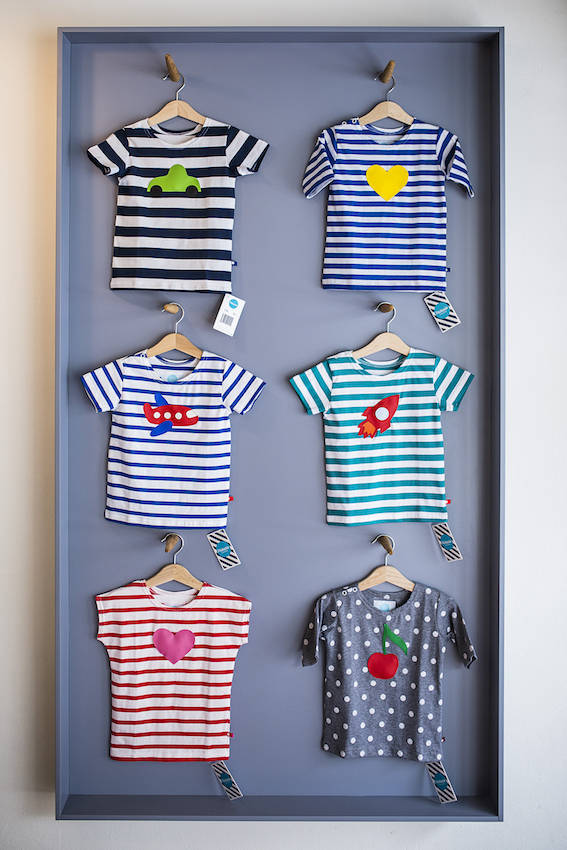
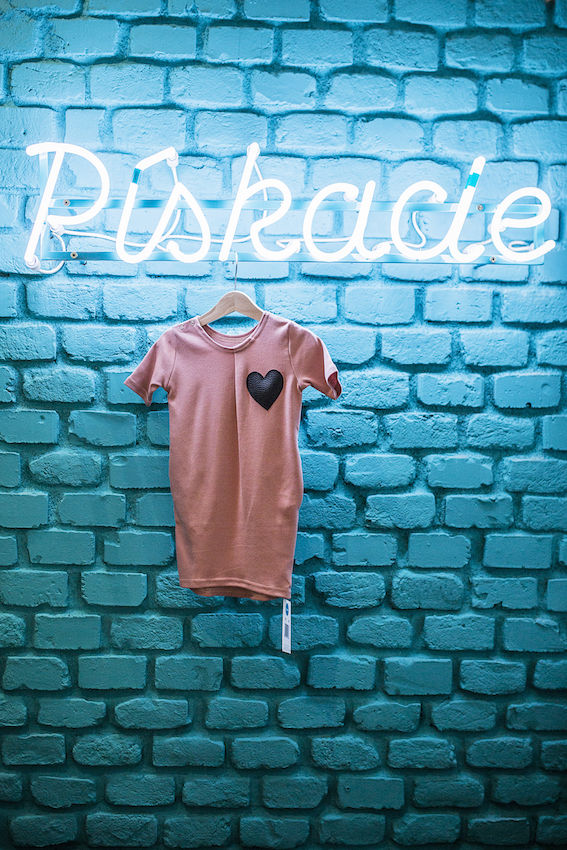
Are you in touch with your customer?
S: I used to spend a time in the shop, when kids were in kindergarten. Today I know that I can fully rely on girls, therefore there is no need to be in shop that much. Even though I still enjoy dropping by now and then, when they need a help.
Who is your customer?
S.: I think it is a mum. Mum shopping for a child but also mum shopping for something for herself. Oversized dress are really popular, I even dare to say it might surpass a selling numbers of t-shirts thanks to the flattering cut. That has always been my aim – to offer nice and comfy pieces even for plus size women so they would leave satisfied.
M.: Our target group is a family I would say. But there are people who want to buy t-shirts for holiday time or a dapper businessman in suit and you are asking yourself what is he doing here and yet he really wants some leisure t-shirt.
How did you face a price formation? It is very challenging in Slovakia since a lot of people are not aware/realize how much effort is being put into the final product, especially when the brand is trying to be responsible.
S.: To obtain the profit, which we desire would mean much higher price of t-shirt even thought I personally think it should not get more expensive. Kids grow fast and not everyone can afford it.
M.: Expenses are high and naturally we would like to have a better profit, because in order to grow and evolve you need resources. But we sat a boundary and kids t-shirt really should not be more expensive than €15&. Of course you can find prices around €3 or €5 in the shops.
We used to hope that one day it would provide not only for seamstress but for us as well, because that is how it really was at the beginning, paying salary for seamstress and later for shop assistant. It was very likely that at that time people found the price €15 for t-shirt to be a lot of money, we witnessed this kind of situation at the markets when mums were pulling kids away from the stall.
But gradually, maybe thanks to influence of € currency or the increasing number of local stores with much higher prices people realised that 15e is actually not that much. Customers see the story behind it all and they probably and fortunately accept the price considering the quality of clothes, which seems to be high enough.
Has the price stayed the same over the years?
M.: We manage to keep the same price despite any complications thought our way, whether it is manufacture expansion or opening of the new shops. We attempt to find the most efficient ways not to increase the price.
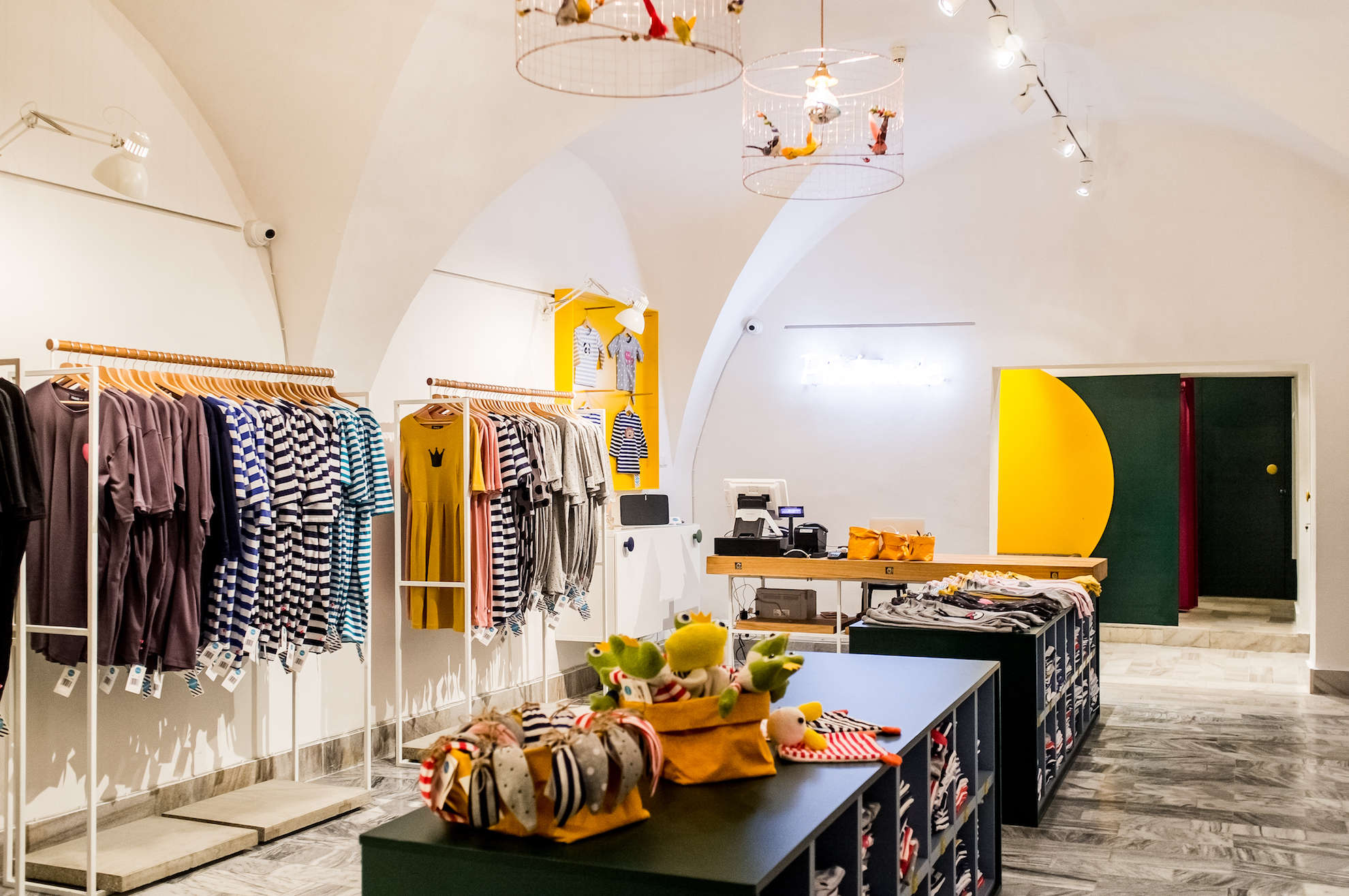
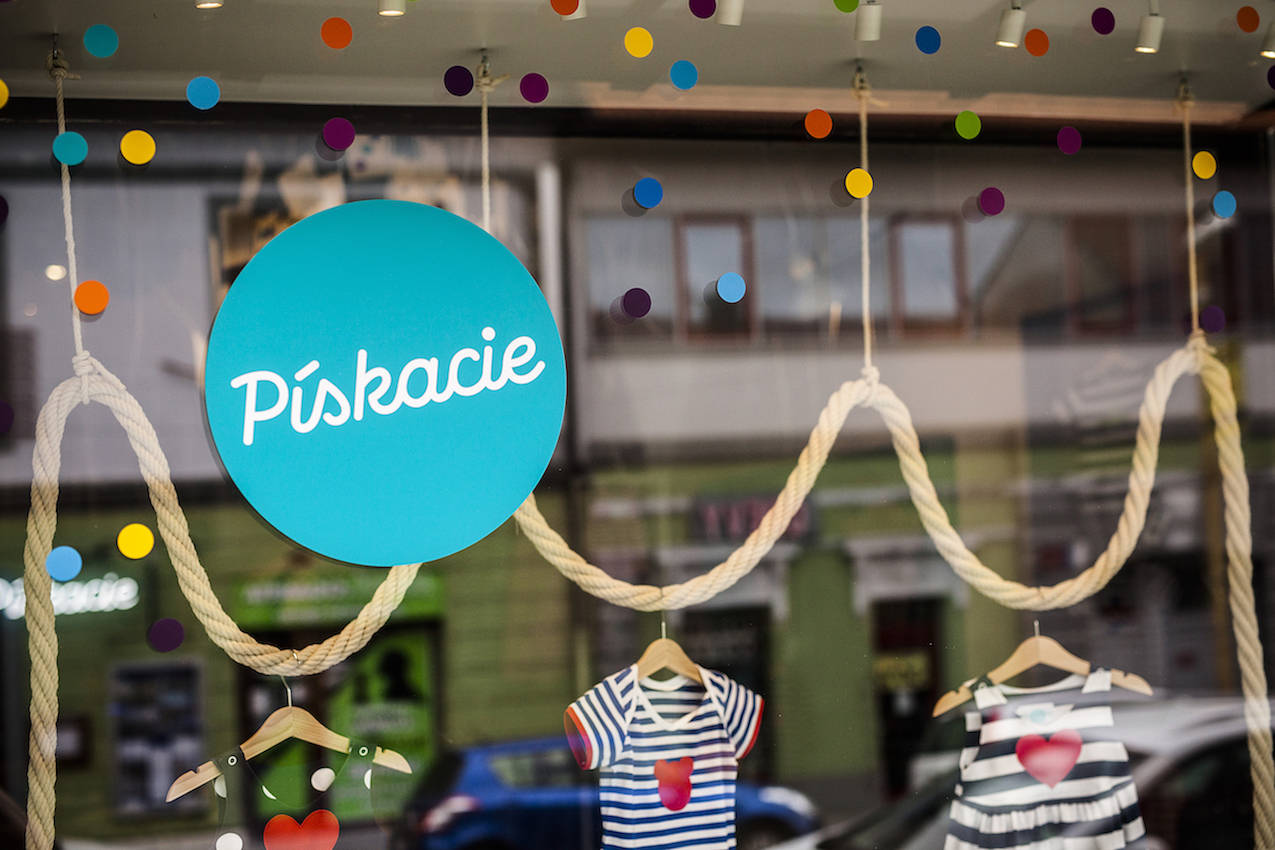
What are ambitions of Piskacie in future? Majo, you mentioned a concern regarding eco trails, which you as a brand leave…
M.: I would love to spread awareness of eco responsibility through the blog. It is natural that each t-shirt dragged from China must travel thousands of kilometres. When we ensure local production, environments suffers less.
S.: A customer can mix his own t-shirt right in the shop, in a case we do not have it. I find this to be eco-friendly approach as well. One might have to wait a few days, but will receive a custom-made t-shirt. We do not produce thousands of t-shirt sitting in the stock eventually ending up at damp anyway, so there is no need to have such a premises, we also do not have to worry about logistics. Our philosophy is produce custom-made t-shirts, covering direct demand, to eliminate a waste and secure the highest manufacture efficiency possible. After all the it reflects positively at the price as well.
Do you live up to this idea of being responsible towards nature also in your private life?
M.: I do not mean to disparage it but we try not to make so much fuss around, it is more about finding balance in life. I understand people are getting more interested where do their clothes come from, increasing the pressure towards producers somewhere in Bangladesh over fair-trade principles. But i suppose it is very wide topic to embrace it in full complexity. Imagine the consequences if we closed down whole manufacture in Asia? Companies are obligated to be responsible enough to ensure meaningful job for employees in healthy conditions and to prevent child labour. We witnessed the same situation in Slovakia when huge industrial companies entered our market searching for cheap labour force and yet still it is up to us and the whole society to find a balance with those business owners.
That’s why we try to support also huge brands, search for harmony.
We are doing our best to provide interesting/enjoyable job for seamstresses, eliminate unnecessary items by covering only the direct demand. I see the little workshop in Hlohovec growing and therefore it also means Piskacie are growing. It is not just about two of us doing what we enjoy, because at this moment there are 22 people involved in this process participating in their own way.
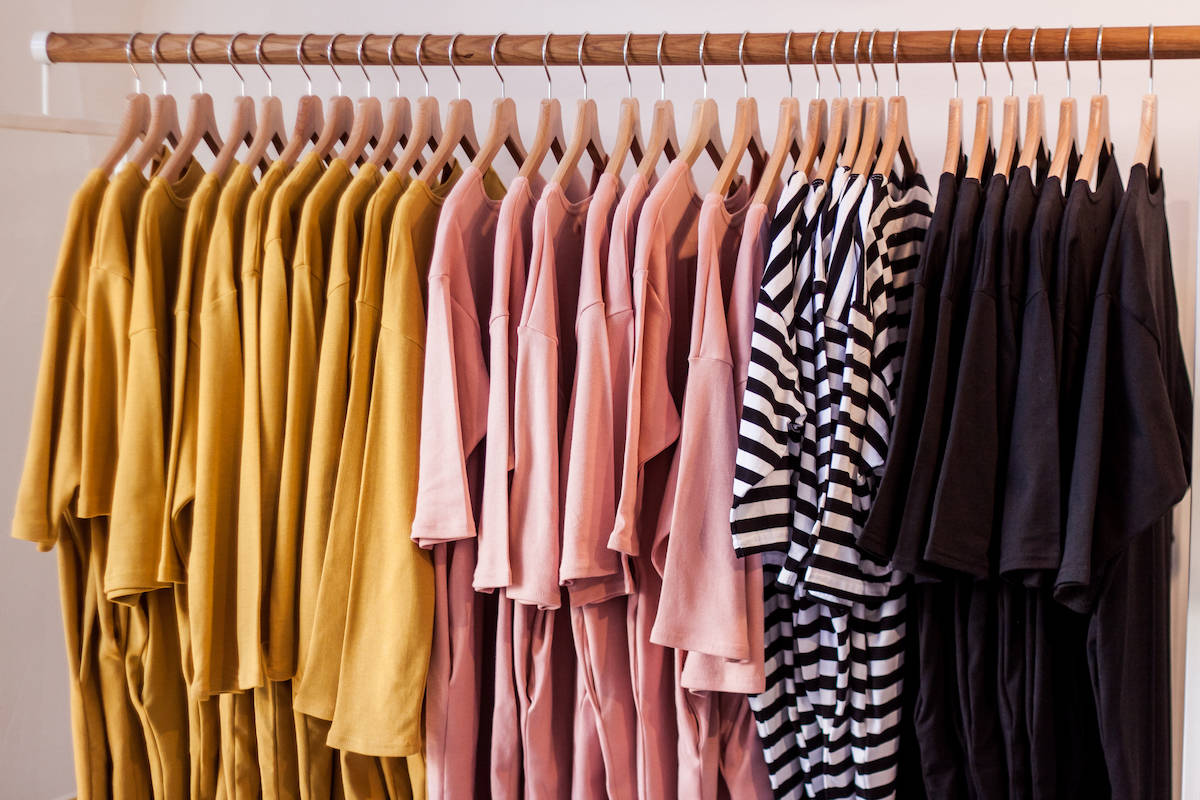
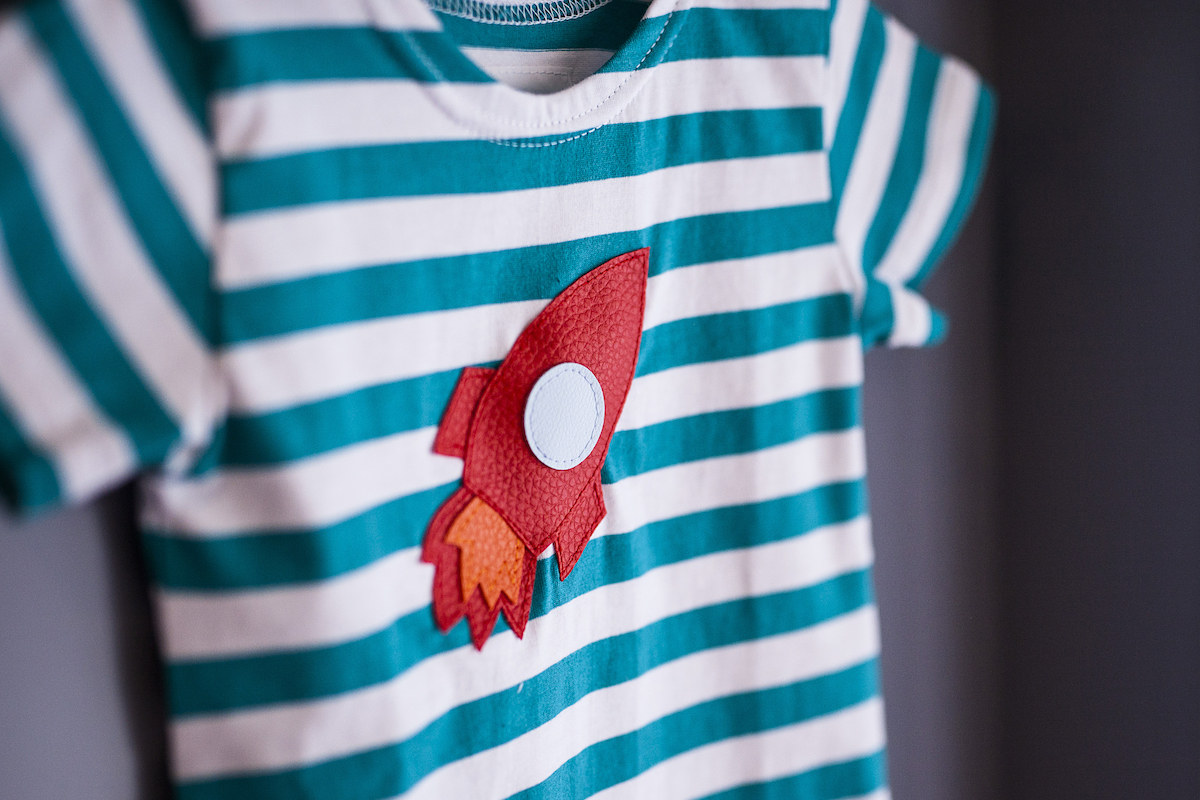
Could you describe your daily routine? It is 4PM on Thusday and I caught at home. How do you share responsibilities and is it possible to distinguish work and private life?
S.: It is pretty easy-going, since Majo is at home. It is all smoothly managed. But I still wonder, you know – a lot of people told me: It would be only work – staying both of you together at home and also running business, it would be nerve-wracking working circle… But I do not take it that way, it is a hobby and we share the mutual interest in improving things – that’s probably why we both still enjoy it. I guess it would be different if we worked for the same company, but having the same goal it has become inseparable part of our life.
M.: But at the same time we kind of work all the time despite being at home. If there’s anyone dealing with a work-balance I’d call it LIFE. We do not separate work and the rest of the life since we are always handling business stuff and also taking kids to after school activities, arranging other family things. We fall asleep thinking what and how we would to get things done. To sum it up we are in fact working all the time.
But the question is: Are you happy?
Majo: Absolutely
Silvia: I am even afraid to admit it (knock on wood)
Text: Veronika Pilátová




